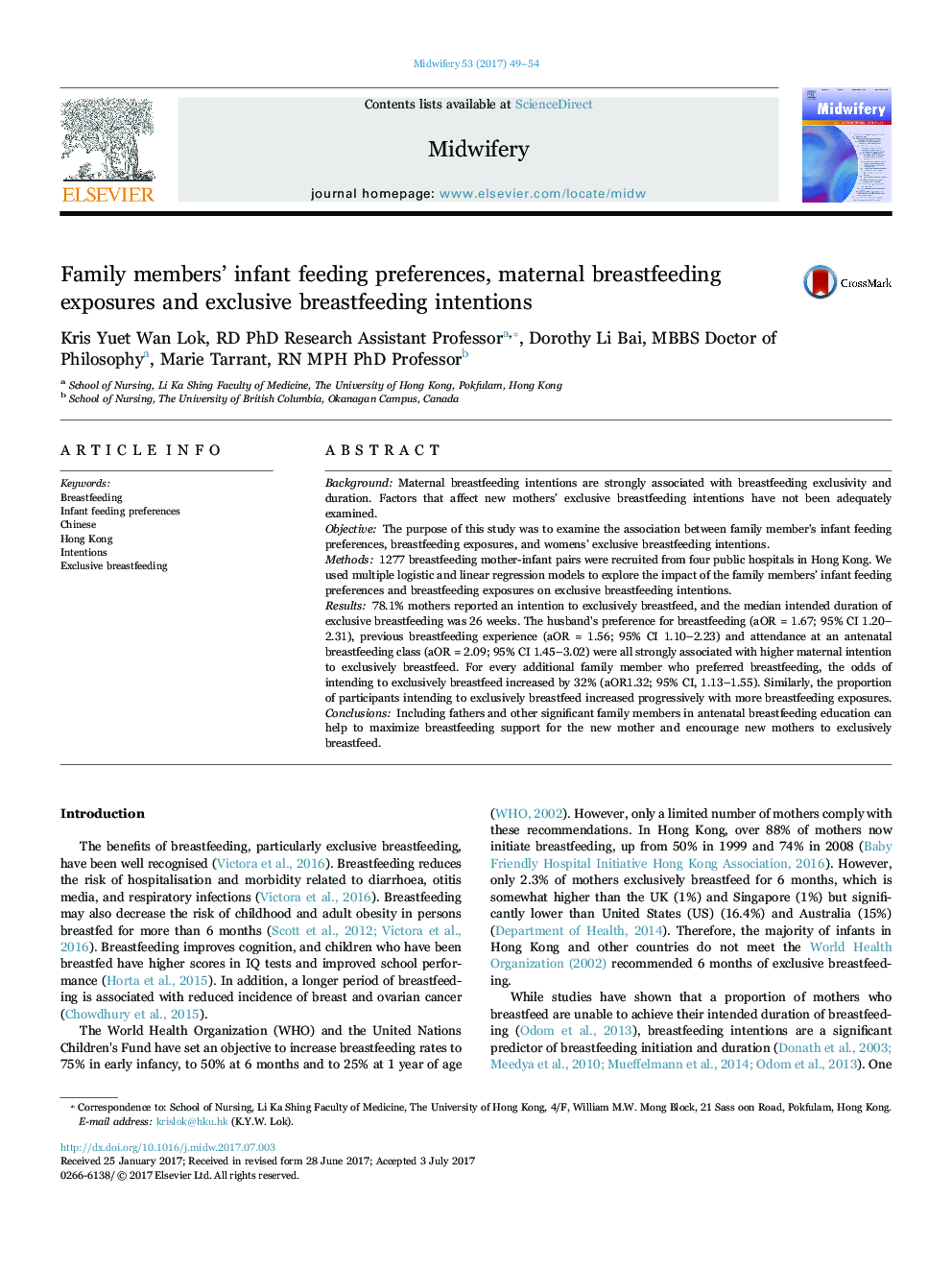| کد مقاله | کد نشریه | سال انتشار | مقاله انگلیسی | نسخه تمام متن |
|---|---|---|---|---|
| 5122187 | 1487131 | 2017 | 6 صفحه PDF | دانلود رایگان |
- Fathers' infant feeding preferences influences intention to exclusively breastfeed.
- Exposure to breastfeeding is associated with higher intention to exclusively breastfeed.
- Inclusion of fathers in antenatal breastfeeding education may promote exclusive breastfeeding.
BackgroundMaternal breastfeeding intentions are strongly associated with breastfeeding exclusivity and duration. Factors that affect new mothers' exclusive breastfeeding intentions have not been adequately examined.ObjectiveThe purpose of this study was to examine the association between family member's infant feeding preferences, breastfeeding exposures, and womens' exclusive breastfeeding intentions.Methods1277 breastfeeding mother-infant pairs were recruited from four public hospitals in Hong Kong. We used multiple logistic and linear regression models to explore the impact of the family members' infant feeding preferences and breastfeeding exposures on exclusive breastfeeding intentions.Results78.1% mothers reported an intention to exclusively breastfeed, and the median intended duration of exclusive breastfeeding was 26 weeks. The husband's preference for breastfeeding (aOR = 1.67; 95% CI 1.20-2.31), previous breastfeeding experience (aOR = 1.56; 95% CI 1.10-2.23) and attendance at an antenatal breastfeeding class (aOR = 2.09; 95% CI 1.45-3.02) were all strongly associated with higher maternal intention to exclusively breastfeed. For every additional family member who preferred breastfeeding, the odds of intending to exclusively breastfeed increased by 32% (aOR1.32; 95% CI, 1.13-1.55). Similarly, the proportion of participants intending to exclusively breastfeed increased progressively with more breastfeeding exposures.ConclusionsIncluding fathers and other significant family members in antenatal breastfeeding education can help to maximize breastfeeding support for the new mother and encourage new mothers to exclusively breastfeed.
Journal: Midwifery - Volume 53, October 2017, Pages 49-54
